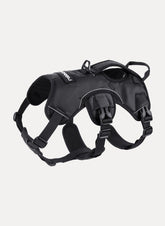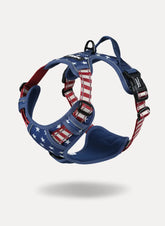How to Care for a Senior Dog
Dogs grow very fast, and we suddenly realize that they have entered the stage of old age before we know it. In fact, a dog's life is relatively short compared to a human's life. Most dogs begin to enter old age at the age of 7 or 8, and large dogs enter old age even faster. Older dogs walk slower, eat slower, and react slower. They will not be as active as before, and will often stay in the corner alone. So how to care for your senior dog?
Dog's Early Signs of Declining Health
1. Hair turns white
After a dog passes puberty and enters middle age, the pigment secretion in the body will gradually decrease. The luster of the dog's coat will also gradually fade. Some dogs also turn completely white, especially around the corners of the mouth and whiskers. If you don't take care of your dog's hair, it can also cause problems such as tangles and dryness.
2. Decreased sense of sight, hearing, and smell
As dogs get older, their sensory abilities will decline. That's why sometimes the dog doesn't respond to you because he doesn't hear or feel you calling him. At this time, the dog's vision will also become blurred. Severe dogs will also have blurred vision and are prone to cataract problems.
3. Inactive
The most obvious feature of dogs entering old age is that they are not so active. Their movements have also become slower, so they prefer to sleep and lie down at home. When your dog just sleeps in addition to eating and going to the toilet, and does not like to move, it means that he is slowly getting old.
4. Digestive problems
As a dog ages, the nutrients he needs change to some extent. Therefore, dog food for adult dogs may not be suitable for older dogs. At the same time, your dog's joints and teeth also begin to age and become more susceptible to damage. Harder foods may damage his teeth and cause digestive problems.
5. Obesity
Older dogs need to pay attention to the amount of exercise. You need to create an exercise program for your dog to make sure he is exercising every day. In addition, pay attention to your dog's diet to avoid diseases caused by obesity. Symptoms such as high blood lipids, high blood pressure, and high blood sugar also appear in dogs, and the prevalence is still very high.
6. Other symptoms
Dental problems
Alzheimer's disease
Bad breath
Incontinence
Inability to walk
How to Care for An Elderly Dog
When your dog is over 6 years old, you need to prepare for his old age. It needs to be taken care of in many aspects: diet, life details, living environment, daily care, etc.
1. Diet
Without enough protein, dogs are prone to muscle loss, weight loss, and possibly kidney failure. Therefore, you can choose some chicken and beef for your elderly dogs. These meats are rich in protein but not high in fat, and they are easy to digest and absorb, so they will not burden your dog's kidneys.
2. Details of life
It is best to give your dog a regular oral cleaning. This can not only prevent oral diseases, periodontitis, calculus, etc. but also alleviate the problem of bad breath in dogs. In addition, grooming the dog regularly can promote blood circulation and benefit the body.
3. Appropriate amount of exercise
Some dogs are reluctant to go out when they are old. Staying at home may accelerate their physical function degradation. At this time, you can encourage them to be active. But you should pay attention to whether your dog is uncomfortable or does not want to walk at any time. If so, don't force your dog.
4. Daily care
It is best to take your dog for regular check-ups to protect your elder dog from disease. Most diseases are easier to cure if detected earlier. Prevention is better than cure.
In addition, you also need to care about the dog's emotions. Please don't despise him or even abandon him because he is old. Dogs are more likely to feel lonely in old age. At this time, you should try to give him more company and spend more time with him.
Things Your Dog May Need:
Recommended Reading:
1. 100 Of The Most Popular Dog Names in 2022





